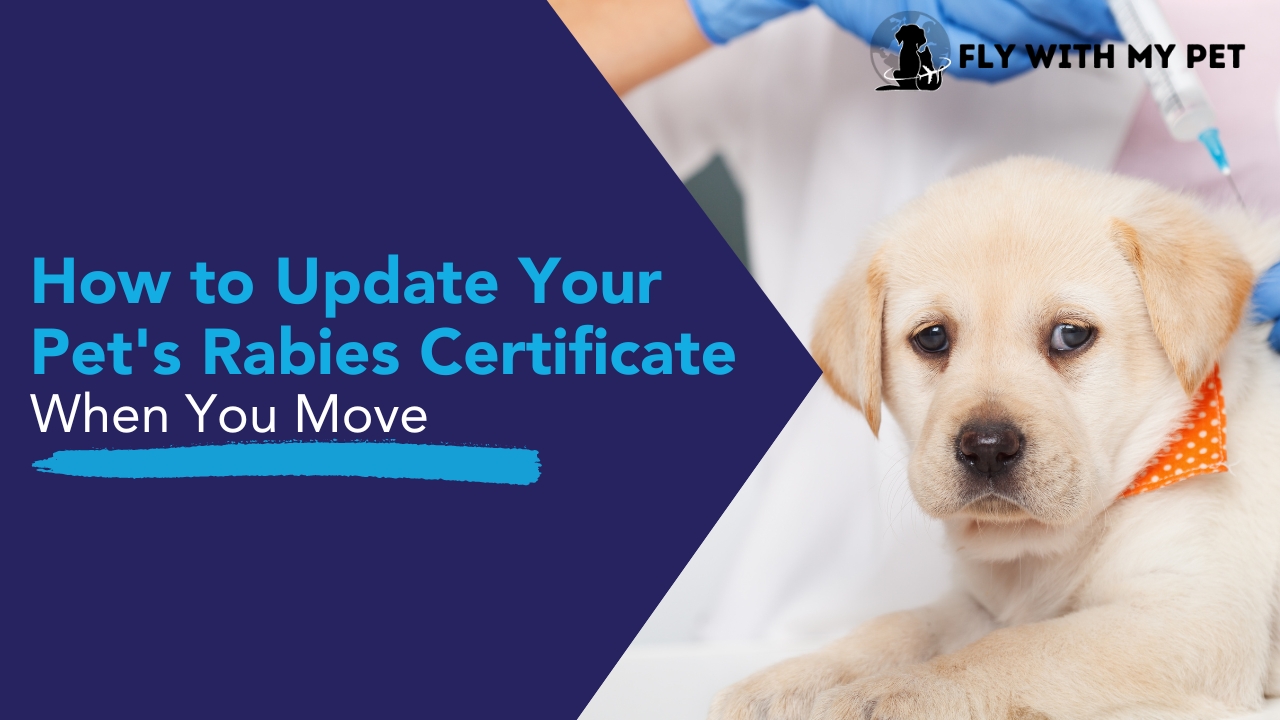
Moving to a new home is an exciting journey but comes with a list of tasks, including updating important documents for your family members—and this includes your pets! One of the essential documents for your pet is the rabies certificate, which is especially important when relocating to a new city or state. Here’s a detailed guide on how to update your pet’s rabies certificate when you move:
Understand the Importance of an Updated Rabies Certificate
A current rabies certificate is crucial for several reasons:
- Legal Compliance: Many localities have specific laws regarding rabies vaccinations and certificates. Ensuring your pet’s rabies certificate is updated can keep you compliant with local regulations and avoid potential fines.
- Public Safety: This certificate is a key document in the event of an incident involving your pet. It assures others that your pet is vaccinated against rabies, thus protecting both public health and your pet.
- Access to Services: Many pet services, from boarding facilities to grooming salons, require up-to-date vaccination records, including a rabies certificate.
Steps to Update Your Pet’s Rabies Certificate After a Move
- Research Local Requirements: Before you move, check the rabies vaccination and certification requirements in your new locality. Requirements can vary widely, with some places requiring more frequent vaccinations or different types of documentation.
- Schedule a Vet Appointment: Once you move, find a local veterinarian and schedule an appointment. This is a good opportunity to update the rabies certificate and establish a relationship with a new vet. If your pet’s rabies vaccination is still current, the vet will want to add it to your pet’s records at the new clinic. Make sure to bring any other old certificates or medical records to the appointment.
- Update the Rabies Certificate: If the rabies vaccine is due soon, it might be a good idea to get it done at your new location. The veterinarian will administer the vaccine and issue a new rabies certificate with your new address and the clinic’s details.
- Transfer Records: Ask your previous vet to transfer your pet’s medical records to your new vet. This ensures that your new vet has a complete health history of your pet, including past rabies vaccinations.
- Keep Digital and Physical Copies: Always keep multiple copies of the updated rabies certificate. Store a digital copy in your email or on a cloud service and keep a physical copy with other important documents.
- Notify Relevant Authorities: If your previous locality had a registration or licensing requirement tied to the rabies certificate, inform them of your move and update any details. Similarly, register your pet with your new local authorities if required.
Additional Tips
- Stay Proactive: Don’t wait for the rabies vaccination to expire. Keeping track of vaccination due dates as part of your moving checklist can prevent last-minute rushes and complications.
- Local Pet Laws: Familiarize yourself with other local pet laws in your new home area, which might include leash laws, waste management, and more.
- Emergency Vet Services: Identify emergency vet services and animal hospitals near your new home. Knowing where to go in an emergency is crucial.
Updating your pet’s rabies certificate when you move is not just about fulfilling legal requirements—it’s a fundamental part of responsible pet ownership. It ensures that your furry friend is safe, healthy, and ready to enjoy your new home with you. Remember, a little preparation goes a long way in making your move smooth for your pet!
